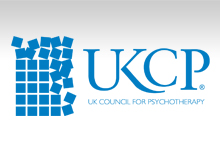Making the decision to approach therapy or counselling is a positive one, although you may have questions or anxieties around it. Therapy and counselling provide an opportunity to reflect on where you are, where you want to be, the way you are living and the choices you are making.
At certain points in life every one of us can feel stuck, face challenges, frustrations a sense of dissatisfaction in the way we live our lives. Therapy and counselling offer you a private, and confidential space to explore, reflect and be heard, to gain clarity, and to challenge yourself.
The therapy/counselling process can help when you want to become unstuck and gain a better understanding of your own behaviour and the issues, feelings and events that motivate them. People of any age and background can grow and change from the experience of therapy.
There is no ‘wrong’ time to begin.
You can email me at counsellingeastlondon@gmail.com or by using the contact box to the right. Alternatively, you can call me on 07940 763 528. I tend to reply to emails more promptly, however I aim to respond to all enquiries within 24 hours.
Counselling East London: Concerns and Questions
If you are approaching therapy for the first time you may feel a little confused, daunted and perhaps a little anxious; you needn’t be. I see one of my tasks as helping you feel at ease.
I don’t label or diagnose people, and I don’t sit for hours in silence and once in while, nod my head. To help out, below you’ll find a list of frequently asked questions.
If you have any other questions, please don’t hesitate to get in touch.
What’s the difference between counselling and psychotherapy?
I use the term counselling to refer to brief, time-limited work. Counselling may often focus on one or two particular issues. Psychotherapeutic work tends to be longer, and looks at your life in a broader context.
How long does therapy last?
Therapy is generally open ended, however it’s your decision about when to begin and ending your therapy. You are free to stop therapy at the time you choose. I often encounter clients that are concerned about becoming trapped in therapy and I feel this is a very valid concern. As such, it is essential and ethical practice to regularly review our work together. An important part of my approach is to discuss how you feel your therapy is progressing, making sure our sessions are working for you. If you feel a session was unproductive or that you’ve wasted your time, say so!
What kind of problem can I bring to counselling or therapy?
Psychotherapy can provide a platform to look at a variety of issues. What you may bring to therapy may be a recent, or current event, or something from your past that is affecting you in the present. Sometimes clients may not even know why they feel unsure, stuck or dissatisfied with the way they are living. Therapy and counselling can serve as a safe space to bring to light the causes of concern that often remain hidden, and it is not unusual for clients to be unsure why they feel they want to engage in therapy. Indeed, a large part of our work would be to explore, understand and clarify periods in life when the path doesn’t seem clear. A client may feel very ambivalent about coming to therapy.
Over many years I have worked with numerous concerns, including:
- Relationship concerns
- Work and career concerns
- Depression
- Anxiety
- Sex and Sexuality
- Addictions and obsessions
- Eating disorders
- Stress around financial difficulties
- Low self-esteem, confidence and shyness
- Bereavement, Grieving & Loss
- Illness and Difficult Diagnoses
- Boredom and a loss of meaning
What should I not expect?
Someone judging you. A wonder cure for everything
When should I seek psychotherapy or counselling?
From childhood through late adulthood, there are certain times when we may need help addressing problems and issues that evoke emotional distress or leave us feel overwhelmed. If you are experiencing these types of difficulties, you may benefit from the assistance of an experienced, trained professional. Psychotherapists and counsellors can offer assistance that we often need during these stressful times. A psychotherapist can help you identify your problems and assist you in finding the best ways to cope with the situation by considering what may contribute to the problem or by finding constructive ways to deal with a situation that is beyond your personal control.
Will I have to reveal everything about myself?
Trust is an important part of the therapeutic process. It’s also a significant word to many people, especially if early relationships in our life have been untrustworthy. Learning to trust could then be a useful goal for therapy in itself. As trust builds in therapy, you are likely to reveal more about yourself and then discover more. But the therapy sessions are yours and you have a right to take things at a speed with which you can cope. If things are going too fast, or too slowly, tell me.
How is therapy different from talking to a good friend?
Many people find it helpful to talk to a professionally-trained person, outside of their family or circle of friends. A psychotherapist has no particular personal involvement and also has experience and training in dealing with relationship and psychological issues. Therapists are trained to listen and focus in a different way from how a friend may hear you. The boundaries of the therapeutic relationship (knowing that sessions will end and begin at certain times, that all material is held strictly confidential, and that the therapist’s interests are the therapeutic process) allow a particular and and unique depth to dialogue.
Do psychotherapists and counsellors give advice?
I feel strongly that an important element of counselling and psychotherapy is to help you make your own decisions. Therefore I will never make a moral decision about the course of action you ought to take. I may sum up what I understand you have been saying in order to help you reflect upon it, and to ensure that I have understood you. However what’s most important, is you deciding what is right, for you.
Do psychotherapists abide by ethical guidelines?
Yes, and as a fully accredited member of the United Kingdom Council for Psychotherapy and a member of the British Association for Counselling and Psychotherapy I abide by their ethical framework and guidelines.


